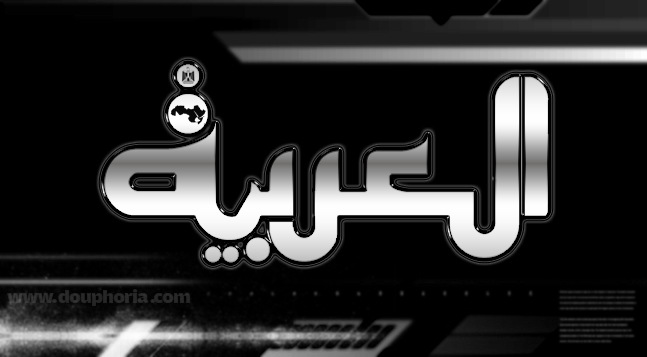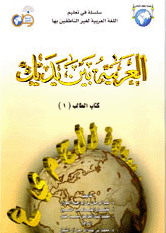
By TAGHREED EL-KHODARY and ISABEL KERSHNER
Published: December 28, 2008
GAZA — Israeli troops and tanks massed along the Gaza border and the government said it had called up reserves for a possible ground operation, as the death toll increased to nearly 300 after Israeli aircraft pounded Gaza for a second day on Sunday.
The continued strikes, which Israel said were in retaliation for sustained rocket fire from Gaza into its territory, unleashed a furious reaction across the Arab world, raising fears of greater instability in the region.
Much of the anger was also directed at Egypt, seen by Hamas and some nearby governments as having acceded to Israel’s military action by sealing its border with Gaza and forcing back many Palestinians at gunpoint who were trying to escape the destruction.
Witnesses at the Rafah border crossing described a chaotic scene as young men tried to force their way across into Egypt, amid sporadic exchanges of gunfire between Hamas and Egyptian forces. Egyptian state television reported that one Egyptian border guard was killed by a Hamas gunman. A Palestinian man was killed by an Egyptian guard near Rafah, Reuters reported.
In Gaza, officials said medical services, stretched to the breaking point after 18 months of Israeli sanctions, were on the verge of collapse as they struggled to care for the more than 600 people wounded in two days.
At Shifa Hospital in Gaza City, women wailed as they searched for relatives among bodies that lay strewn on the hospital floor. One doctor said that given the dearth of facilities, not much could be done for the seriously wounded, and that it was “better to be brought in dead.”
The International Committee of the Red Cross appealed on Sunday for urgent humanitarian assistance, including medical supplies, to be allowed to enter Gaza. Israeli officials said that some aid had been allowed in through one of the crossings. Egypt temporarily opened the Rafah crossing on Saturday to allow some of the wounded to be taken to Egyptian hospitals.
Israel made a strong push to justify the attacks, saying it was forced into military action to defend its citizens. At the same time, the supreme religious leader of Iran and the leader of Hezbollah expressed strong support for Hamas.
Across Gaza, families huddled indoors as Israeli jets streaked overhead. Residents said that there were long blackouts and that they had no cooking gas. Some ventured out to receive bread rations at bakeries or to brave the streets to claim their dead at the hospitals. There were few mass funerals; rather, families buried the victims in small ceremonies.
At dusk on Sunday, Israeli fighter jets bombed over 40 tunnels along Gaza’s border with Egypt. The Israeli military said that the tunnels, on the Gaza side of the border, were used for smuggling weapons, explosives and fugitives. Gazans also use many of them to import consumer goods and fuel in order to get around the Israeli-imposed economic blockade.
In the first two days of the operation Israeli jets destroyed at least 30 targets in Gaza, including the main security compound and prison in Gaza City known as the Saraya, metal workshops throughout Gaza that were suspected of manufacturing rockets, and Hamas military posts.
Hamas said Israel bombed a government ministry compound and the Islamic University in Gaza, a stronghold of Hamas, late Sunday night. The Hamas-owned television station Al Aqsa was also struck, as was a mosque that the Israeli military said was being used as a terrorist base.
On Monday, Israeli warplanes bombed the Hamas-run Interior Ministry, Reuters reported, based on a Hamas statement.
Israel appeared to be settling in for a longer haul. The government on Sunday approved the emergency call-up of thousands of army reservists in preparation for a possible ground operation as Israeli troops, tanks, armored personnel carriers and armored bulldozers massed at the border.
Speaking before the weekly cabinet meeting in Jerusalem, Israel’s defense minister, Ehud Barak, said the army “will deepen and broaden its actions as needed” and “will continue to act.” Prime Minister Ehud Olmert said Israel’s goal was not to reoccupy Gaza, which it left unilaterally in 2005, but to “restore normal life and quiet to residents of the south” of Israel.
Tzipi Livni, Israel’s foreign minister, appeared on American talk shows to press Israel’s case. She said on “Fox News Sunday” that the operation “is needed in order to change the realities on the ground, and to give peace and quiet to the citizens in southern Israel.”
Militants in Gaza fired barrages of rockets and mortar shells the farthest yet into Israel on Sunday. One rocket fell in Gan Yavneh, a village near the major port city of Ashdod, almost 20 miles north of Gaza. Two landed in the coastal city of Ashkelon. Several Israelis were wounded.
The hundreds of thousands of Israeli citizens now within rocket range have been instructed by the authorities to stay close to protected spaces.
In Lebanon, the leader of the Shiite militant group Hezbollah, Sheik Hassan Nasrallah, put his fighters on alert, expressing strong support for Hamas and saying that he believed Israel might try to wage a two-front war, as it did in 2006. He called for a mass demonstration in Beirut on Monday. And he, too, denounced Egypt’s leaders. “If you don’t open the borders, you are accomplices in the killing,” he said in a televised speech.
Iran’s supreme religious leader, Ayatollah Ali Khamenei, condemned the silence of some Arab countries, which he said had prepared the grounds for the “catastrophe,” an Iranian news agency, ISNA, reported.
“The horrible crime of the Zionist regime in Gaza has once again revealed the bloodthirsty face of this regime from disguise,” he said in a statement. “But worse than this catastrophe is the encouraging silence of some Arab countries who claim to be Muslim,” he said, apparently in a reference to Egypt and Jordan.
Egypt has mediated talks between Israel and the Palestinians and between Hamas and Hamas’s rival, Fatah, leaving it open to criticism that it is too willing to work with Israel. In turn, Egypt and other Western-allied Sunni Arab nations are deeply opposed to Hezbollah and Hamas, which they see as extensions of Iran, their Shiite nemesis.
Across the region, the Israeli strikes were being broadcast in grisly detail almost continually on Arab satellite networks.
In the Syrian capital, Damascus, a large group of protesters marched to Yusuf al Azmeh Square, where they chanted slogans and burned Israeli and American flags.
In Beirut, protesters were bused to a rally outside the United Nations building, holding up Palestinian flags and Hamas banners. Muhammad Mazen Ibrahim, a 25-year-old Palestinian who lives in one of the refugee camps here, choked up when asked about the assault on Gaza.
“There’s an agreement between Egypt, Saudi Arabia, Jordan and Israel against Hamas,” he said. “They want to end them; all the countries are in league against Hamas, but God willing, we will win.”
That sentiment is widespread here. Many see Ms. Livni’s visit to Cairo last week as evidence that Egypt, eager to be rid of Hamas, had consented to the airstrikes.
The anger echoes what happened in July 2006, when the leaders of Saudi Arabia and Egypt publicly blamed Hezbollah for starting the conflict with Israel. Popular rage against Israel soon forced the leaders to change their positions.
Hamas, sworn to the destruction of Israel, took control of Gaza when it ousted Fatah last year. An Egyptian-brokered six-month truce between Israel and Hamas, always shaky, began to unravel in early November. It expired 10 days ago.
Fawzi Barhoum, a spokesman for Hamas, told reporters that Israel had started a “war” but that it would not be able to choose how it would end. He called for revenge in the form of strikes reaching “deep into the Zionist entity using all means,” including suicide attacks.
---
Taghreed El-Khodary reported from Gaza, and Isabel Kershner from Jerusalem. Reporting was contributed by Robert F. Worth and Hwaida Saad from Beirut, Lebanon, Nazila Fathi from Tehran, Rina Castelnuovo from the Israel-Gaza border, Khaled Abu Aker from Ramallah, West Bank, and an employee of The New York Times from Syria.

















